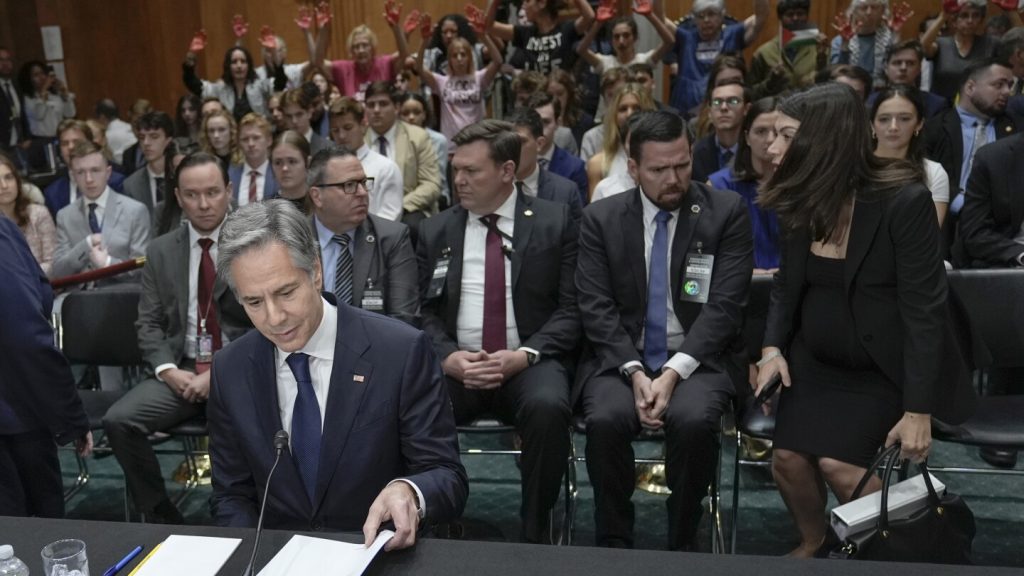In his testimony before the Senate, Secretary of State Antony Blinken criticized the chief prosecutor of the International Criminal Court for seeking the arrest of Israeli Prime Minister Benjamin Netanyahu. He also condemned the prosecutor’s decision to equate Israeli officials with Hamas leaders. Blinken reiterated the U.S. position that the ICC does not have jurisdiction over Israel and considered the prosecutor’s actions as “extremely wrong-headed.” There were disruptions during Blinken’s testimony as protestors condemned U.S. policy towards Israel and accused him of being a “war criminal.”
Senate Republicans have threatened sanctions against ICC personnel over the decision to seek arrest warrants for Netanyahu and Israeli Defense Minister Yoav Gallant. Blinken stated that the administration would work with lawmakers to formulate an appropriate response if necessary. He highlighted the role of Hamas in initiating the conflict in Gaza with attacks on Israel in October. Despite offering condolences for the death of Iranian President Ebrahim Raisi, Blinken emphasized that it did not change Raisi’s history of repression towards his own people. The administration’s stance on Raisi and Iran remains firm despite diplomatic engagements.
Blinken’s comments come amidst indirect talks between a top Middle East adviser to President Biden and Iran’s acting foreign minister. The talks were facilitated by Omani officials and aimed at conveying concerns and managing risks in the region. The U.S. has used indirect channels in the past to communicate with the Iranians and emphasize consequences for destabilizing actions. Recent conflict escalation between Israel and Iran, following an Israeli strike in Syria that killed two Iranian generals, has raised concerns of a broader regional conflict. The U.S. has intervened to help down Iranian missile attacks on Israel.
The Biden administration’s position on the ICC’s decision regarding Israeli officials reflects a continued commitment to supporting Israel as a key ally. Blinken’s testimony underscored the administration’s condemnation of Hamas’ actions and its refusal to equate Israeli leadership with Hamas militants. The administration’s engagement with Iran, despite expressing condolences for Raisi’s death, emphasizes a firm stance against Iranian repression and destabilizing actions. Indirect talks with Iran serve as a channel for conveying concerns and managing risks in the volatile Middle East region.
The disruptions during Blinken’s testimony and the criticism from protesters highlight the divisive nature of U.S. foreign policy towards Israel and Iran. While the administration faces pressure from Senate Republicans over sanctions towards ICC personnel, Blinken’s testimony reiterates the administration’s commitment to work with lawmakers on a measured response. The complex dynamics between the U.S., Israel, and Iran underscore the challenges of navigating diplomacy in a region plagued by longstanding conflicts and geopolitical tensions. Despite external pressures and internal dissent, the Biden administration remains steadfast in its approach to foreign affairs and engagement with key players in the Middle East.


